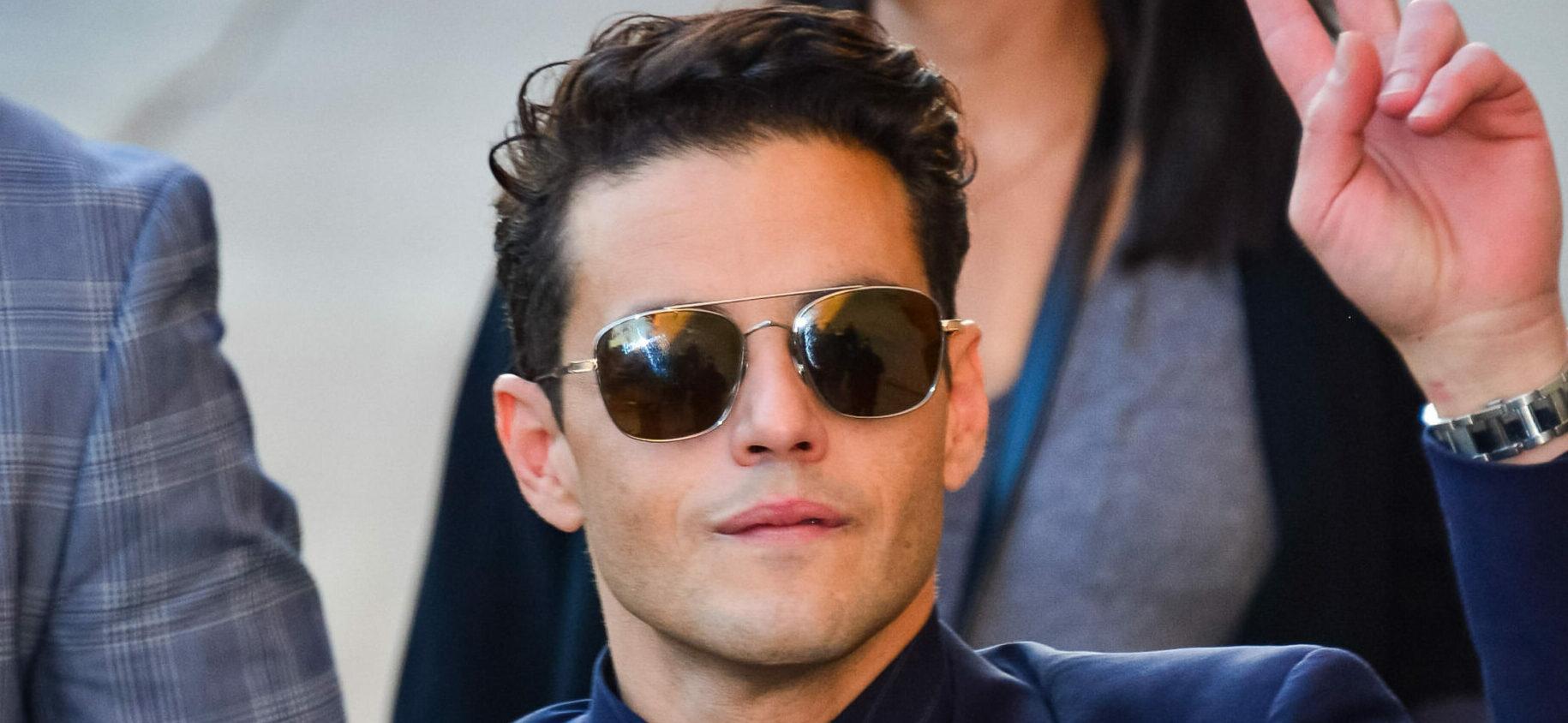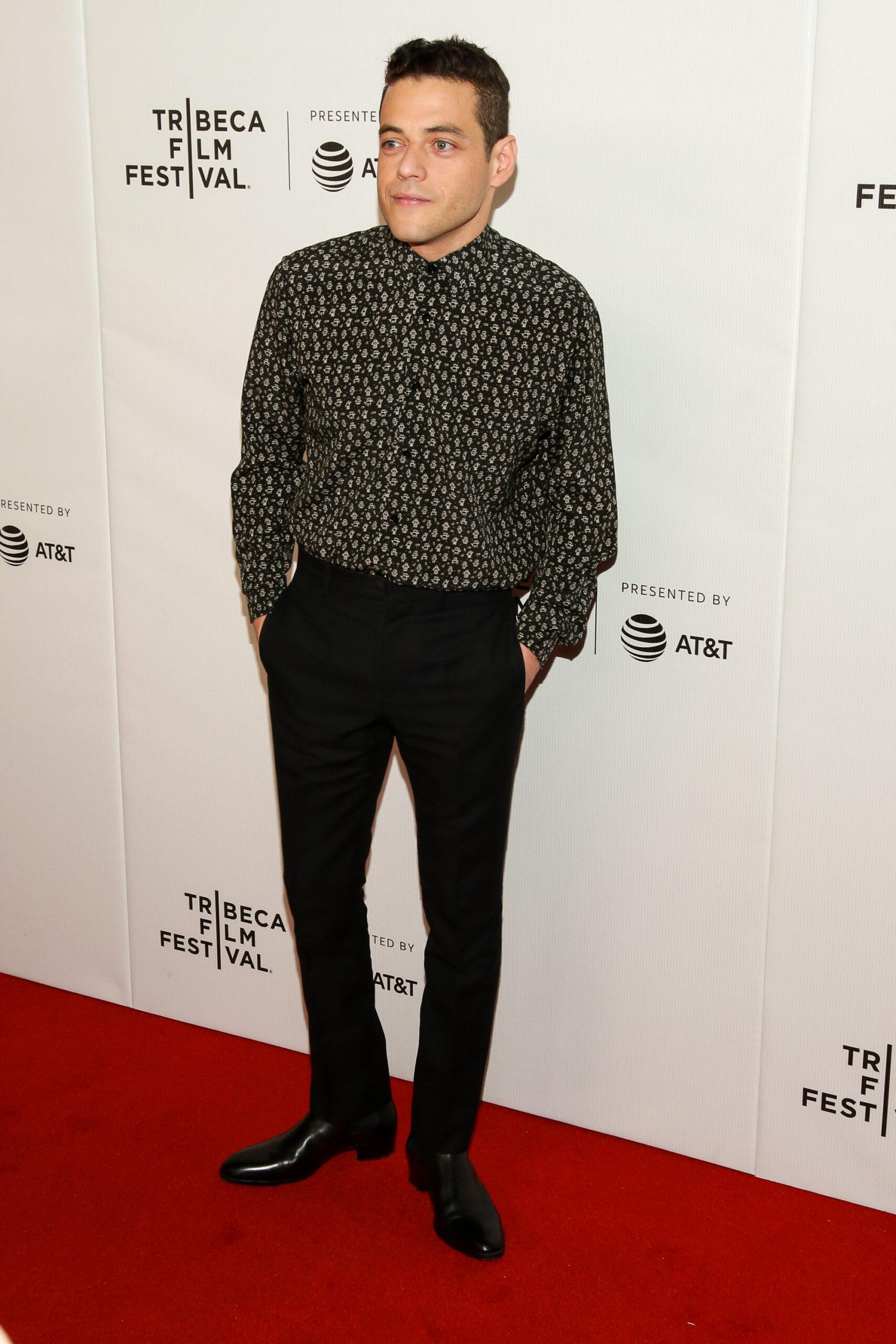Rami Malek’s Narration in 'Mr. Robot' Magnifies Distortion and Deception
By Kim Handysides on March 21, 2022 at 6:00 PM EDT

Of the many incarnations of the unreliable narrator in recent years, none do it quite so well as Rami Malek’s portrayal of Elliot Alderson in the cult-classic series Mr. Robot. Rami’s immaculate performance as the paranoid cyber-vigilante claws the audience into a sunken world of depravity and darkness that they can’t quite escape - nor want to. From the very first scene, Elliot leads us down a winding corridor of confusion and intrigue that defies all logic and causes us to question everything we think we know about the world and our own ability to process it. While most fourth wall breaks serve to keep the audience informed and endeared, the narration in Mr. Robot takes advantage of the trope and subverts our trust, leaving us to feel just as alienated and anxious as our narrator.
The series is narrated so well in fact, that Rami Malek received a PrimeTime Emmy for Outstanding Lead Actor in a Drama Series - among several other awards the program claimed for itself.
*We’re going to attempt to avoid spoilers just in case you haven’t yet watched Mr. Robot, as the points are essential to its allure, but do feel free to catch up in the meantime*
“Hello Friend”

The series opens on two bone-chilling words: Hello friend. Right from the beginning of the first episode, we begin to suspect something isn’t quite right with our narrator, Elliot Alderson, but little do we know how cunning the plot actually is. Groomed into Elliot’s fractured perception of reality, the voiceover Rami Malek provides for the series haunts us to the core. He calls out to the audience not simply as an audience, but as something - someone - he can name, but wouldn’t possibly dare. So he settles on a friend. The power of this voiceover alone, set against a blackened screen, is so impactful and raw that viewers can’t help but jump down the rabbit hole with him through the ups and downs of his own waning sanity. On the best of days, our narrator is confident enough in his abilities to bring down the uber-elite that we want to see him do it; on the worst of days, he’s shattered, paranoid, and lost, even to himself. Elliot’s narration serves not just as the underlying tone for the award-winning drama series, but an integral aspect of the story itself.
A Confused Narrator
This series doesn’t just center around its flawed anti-hero, Elliot Alderson. That would be too easy. Quite the opposite, it revolves around the hidden world he's ensconced in, and by telling the story through his distorted perceptions of the reality around him, the audience is lulled into a false sense of security about what they’re being told. Once viewers finally feel safe in their assumptions about the first story arc, the rug is pulled out from under them and the truth (or at least a potentially flawed interpretation of it) comes to light. The moment our preconceived notions are shattered, the series takes on a whole new tone, even more, sinister and insidious than we could have possibly imagined. Using the voice of a terrified, socially anxious, and paranoid anti-hero, the story takes on a life of its own and gets away from our narrator. Episode by episode, line-by-line, the casual control Elliot exhibits over the lives of bad people, and his own sanity begins to deteriorate. As the lines of reality begin to blur, and the audience is drawn even further into this invisible world, we lose sight of the true events of the story, and the plot begins to mimic Elliot’s own reality in a twisted parallel that feels like a Stephen King novel written about the love child of Fight Club and hacker-group Anonymous. Suffice to say that shocking as they reveal should be to the audience, our narrator did foreshadow the possibility in his very first lines of voice-over - our narrator doesn’t trust his own mind.
In a knee-jerk twist that bends the senses, the plot thickens and our narrator disappears from us, leaving his alter-ego, the show’s namesake, to pick up the pieces and take over not just narration duty, but Elliot’s life as well.
A Second Narrator
As our narrator descends further and further into the recesses of his own grief-stricken mind,
Mr. Robot, a dissociative personality forged in the likeness of Elliot’s late father, begins to talk to the audience in his place. For most of the series, Christian Slater’s character, Mr. Robot was a seemingly unknowable foe who antagonized Elliot’s best efforts at sanity and subverted his control at every turn, but the reality of it couldn’t be much further from the truth. Malek’s narration was done so well that we genuinely believe Mr. Robot to be a different character altogether, except at the end of the day, he’s only a partitioned aspect of the whole. In the same way that Elliot believes Mr. Robot to be his own distinct entity, the audience does too, and they lose sight of the fact that they’re the same person. Even though Malek is shown on screen being controlled by his alternate personality, Slater’s voiceover and lingering presence behind him only adds to the effect, and genuinely has us believing that they are separate individuals, even though we’re constantly being reminded that they aren’t.
The narrative of the series is so cleverly scripted, and the voiceover so expertly performed, that its cult following and a cascade of awards should be more expectation than a surprise.
No Stranger to Voice Over Work
The role of Elliot Alderson not only earned Rami Malek a PrimeTime Emmy for Outstanding Lead in a Drama but helped to catapult his career into the limelight, allowing him to land impressive roles like Freddy Mercury in Bohemian Rhapsody. In this role, we actually get to hear the voiceover use of his singing meshed together alongside the voice of the legendary vocalist himself, Freddy Mercury. The sheer range Malek is capable of is nothing short of jaw-dropping.

Although Malek got his acting start as a recurring guest on Gilmore Girls, he branched out soon after and dabbled in voiceover work. Not many people would be aware of this, but the Golden Globe winner actually did uncredited voice-over work for multiple characters in Halo 2 prior to finding his footing as an actor and landing feature roles in the Night at the Museum franchise.
Kim Handysides is an award-winning voice artist, coach and thought leader in her industry. Her narrations have been heard on Discovery, Netflix, and the major networks, in iMax, the White House and the Smithsonian.